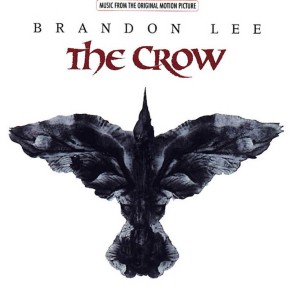When I was younger, I absolutely lived for live music. I spent as little money as possible on rent and food in order to pay for 3 hour drives to neighboring cities, in order to catch great bands as they came through the area. On one such occasion, I happened upon the most amazing opening act I’d ever witnessed. 3, fronted by unequaled guitar players Joey Eppard and Billy Riker, blew my mind. I had attended the show for the headliner, but 3 left the most lasting impression on me. Certainly, Eppard’s playing would inspire me for more than a decade after. What was most endearing, however, was not Eppard’s style, or Riker’s shredding, but rather, the band’s complete cohesion. This 5-piece band was so incredibly coordinated, so fluid in their consistency, that they seemed to embody the very ideal of progression. At first listen, it was apparent to me that this band was working toward a purely artistic goal.
At the time, the band was promoting its album Wake Pig on Planet Noise Records. A year or two later, they would get the opportunity to remaster it under the Metal Blade tag. 3 was off to a rather slow start, as their albums, while always well received, were not blowing up like they should be. Their music’s intricacies would, at first glance, seem to alienate listeners who are not musically inclined, but their strong, consistent rhythms, metal-edged guitars, and ethereal vocals provide an accessibility that warms their sound to even the most radio-dulled ear in the crowd. Their largest setback was in their association, which, to their credit, is not something that they have worked to draw on. Within the same league as other, more popular musical acts, 3 had a hard time making a bigger impression without the theatricality that worked so well for other bands. Instead, 3 kept it pure. They kept it niche. And they didn’t force themselves to emulate what was already successful.
Had 3, the band, taken their music and their performance in a more popular direction, had they adopted the flare of their cohorts, they might have reached enviable heights in stardom. But 3, as they describe themselves, is a band apart. Their sound has continued to evolve and emerge as a force in an atrophied industry, their presence stays true to their vision, and for that, they may always remain in obscurity, but they will always remain. I own 3 copies of Wake Pig, still: the original pressing, signed by Joey Eppard, the remaster on Metal Blade, signed by the full band, and a listening copy of the Metal Blade release – plus digital copies of both versions, and I still find opportunities to listen to them. These records are nothing short of astounding, and only add to the quality of 3’s library to date. Every effort, every performance, every appearance, is progression. Even if this band never tops Billboard, they will always break hearts and blow minds.
Experience this force for yourself by following the album link to Amazon and purchasing Wake Pig, after that I challenge you to resist buying The End is Begun, Revisions, and The Ghost you Gave to me. You’ll have no money for the bar, but you will have a definitive collection of records that will shift your musical palate. 3 is, perhaps, the best band that you haven’t heard of.
Word.
twitter: @officialband3







